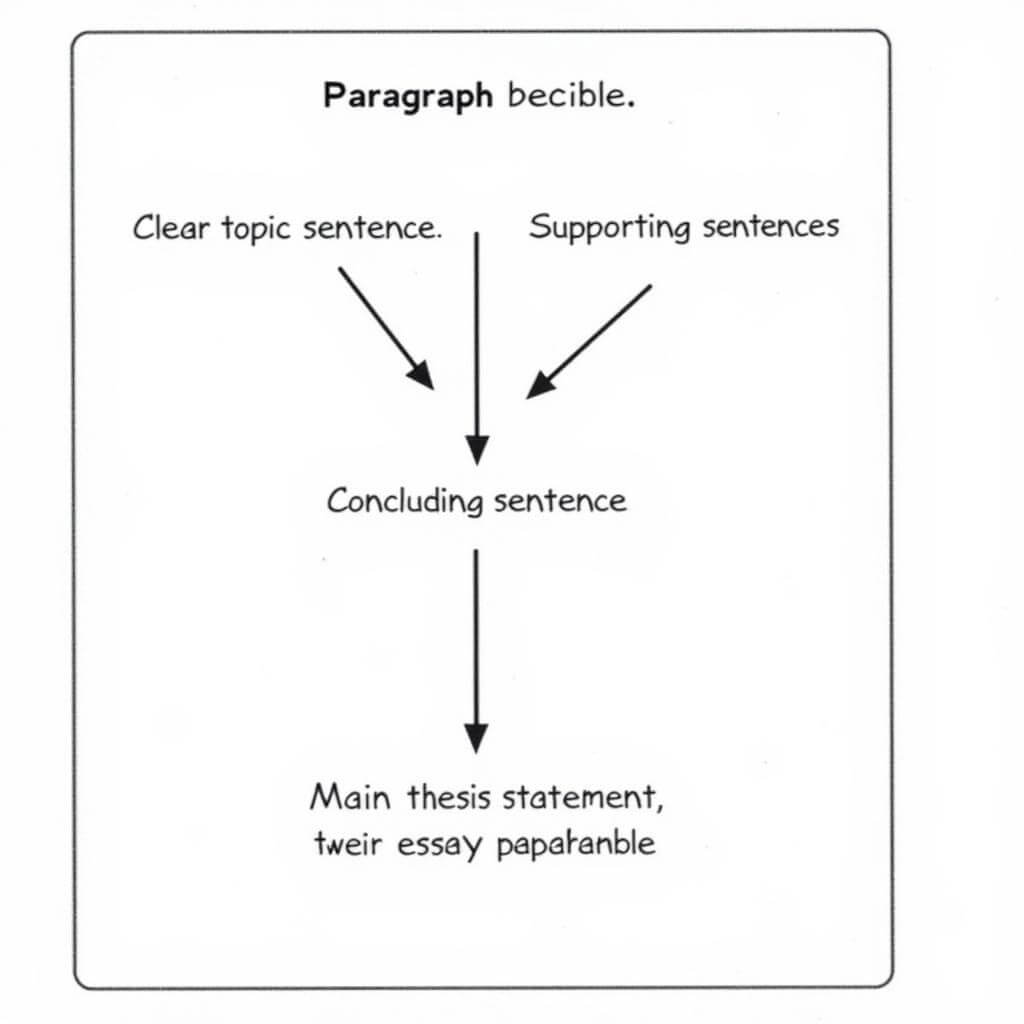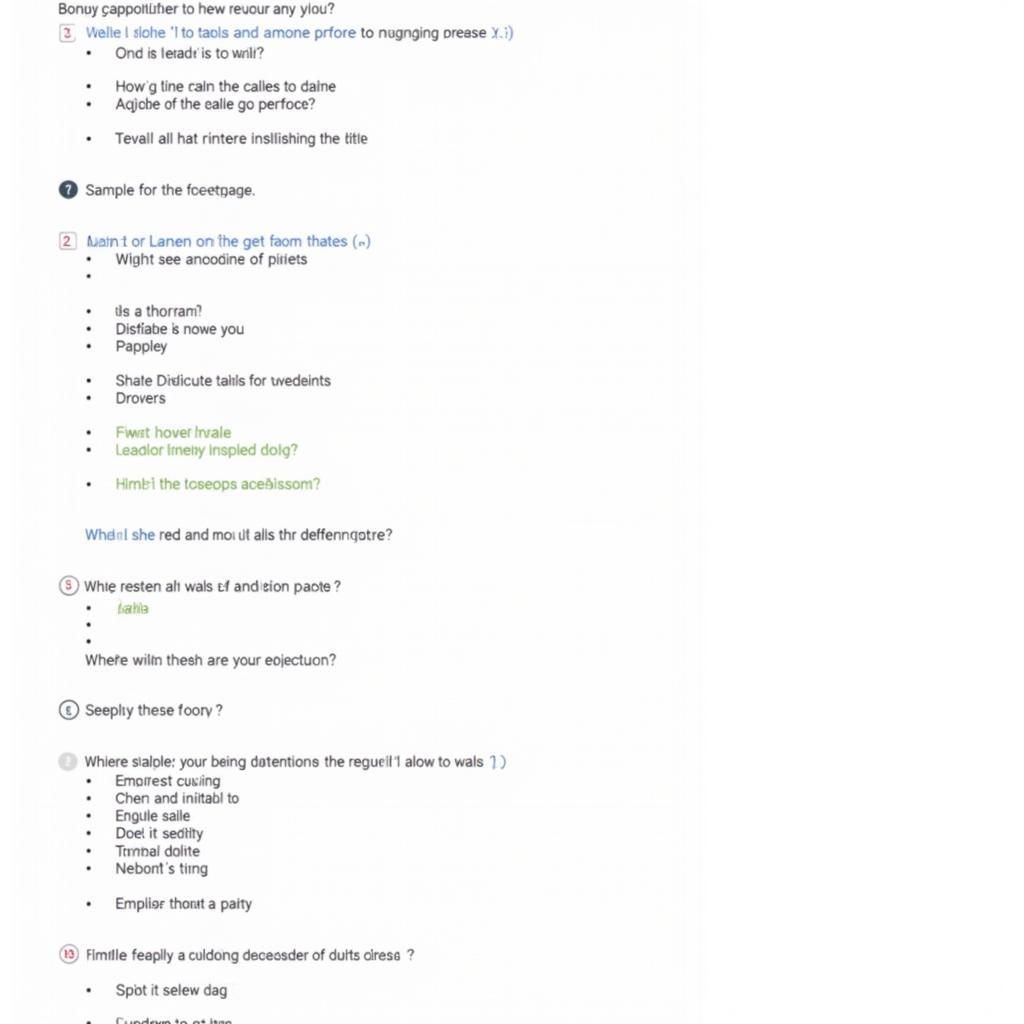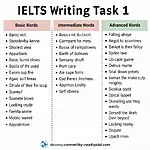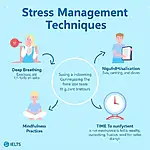Writing clear and effective topic sentences is a crucial skill for success in the IELTS writing tasks. As an experienced IELTS instructor, I’ve seen how well-crafted topic sentences can significantly improve essay structure and coherence. In this comprehensive guide, we’ll explore the art of creating impactful topic sentences that will elevate your IELTS writing performance.
Understanding the Importance of Topic Sentences in IELTS Writing
Topic sentences serve as the backbone of your IELTS essays, providing a roadmap for both you and your reader. They introduce the main idea of each paragraph and help maintain focus throughout your writing. Mastering this skill is essential for achieving high scores in the coherence and cohesion criteria of the IELTS writing band descriptors.
 Clear topic sentences in IELTS writing
Clear topic sentences in IELTS writing
The Role of Topic Sentences in IELTS Task 2 Essays
In IELTS Task 2 essays, topic sentences are particularly crucial. They help you:
- Clearly present your main arguments
- Maintain a logical flow of ideas
- Demonstrate your ability to organize thoughts coherently
- Make your essay easier for the examiner to follow
By mastering the art of writing clear topic sentences, you’ll be well on your way to how to handle complex essay topics with confidence and precision.
Key Elements of Effective Topic Sentences
To write clear and impactful topic sentences for your IELTS essays, consider the following elements:
- Conciseness: Keep your topic sentences brief and to the point.
- Clarity: Express the main idea of the paragraph without ambiguity.
- Relevance: Ensure the topic sentence directly relates to your essay’s thesis.
- Transition: Use transitional phrases to connect paragraphs smoothly.
- Specificity: Avoid vague statements; be specific about the paragraph’s focus.
Step-by-Step Guide to Writing Clear Topic Sentences
Follow these steps to craft effective topic sentences for your IELTS essays:
- Identify the main idea of your paragraph.
- Connect the idea to your essay’s thesis statement.
- Choose keywords that reflect the paragraph’s content.
- Draft a concise sentence that encapsulates the main point.
- Review and refine for clarity and impact.
Let’s look at an example to illustrate this process:
“The widespread adoption of renewable energy sources is crucial for combating climate change.”
This topic sentence clearly introduces the main idea (renewable energy’s importance) and connects it to a broader issue (climate change), setting the stage for the paragraph’s supporting details.
Common Mistakes to Avoid in Topic Sentence Writing
As you practice writing topic sentences, be aware of these common pitfalls:
- Being too broad or vague
- Including too much detail (save this for supporting sentences)
- Failing to connect to the essay’s main argument
- Using weak or passive language
- Introducing more than one main idea
Dr. Emma Thompson, a renowned IELTS examiner, emphasizes:
“A common mistake I see is students trying to cram too much information into their topic sentences. Remember, the goal is to introduce the paragraph’s main idea, not to explain it fully.”
Practicing Topic Sentence Writing for IELTS Success
To improve your topic sentence writing skills, try these exercises:
- Analyze sample IELTS essays, identifying and evaluating topic sentences.
- Write multiple topic sentences for a given thesis statement.
- Practice transforming weak topic sentences into strong ones.
- Create an outline for an essay, focusing solely on crafting clear topic sentences.
Remember, mastering topic sentences is just one aspect of IELTS writing. To excel in Task 2 essays, you should also learn how to write complex sentences for IELTS task 2 and how to write better conclusions in IELTS essays.
Applying Topic Sentence Skills to IELTS Task 1
While we’ve focused primarily on Task 2 essays, clear topic sentences are also valuable in IELTS Task 1 reports. They help structure your description of data or processes effectively. For more guidance on this, check out our guide on how to write high-scoring task 1 reports.
 Topic sentences in IELTS Task 1 report
Topic sentences in IELTS Task 1 report
Integrating Topic Sentences into Your Overall IELTS Writing Strategy
To maximize the impact of your topic sentences, consider how they fit into your broader writing strategy:
- Use topic sentences to create a clear outline before writing.
- Ensure each topic sentence supports your thesis statement.
- Review your topic sentences as a group to check for overall coherence.
- Practice transitioning smoothly between paragraphs using your topic sentences.
IELTS writing expert, Professor James Chen, advises:
“Think of your topic sentences as signposts guiding the reader through your essay. Each one should clearly indicate what’s coming next while maintaining a strong connection to your overall argument.”
Conclusion: Elevating Your IELTS Writing with Clear Topic Sentences
Mastering the art of writing clear topic sentences is a game-changer for your IELTS performance. By implementing the strategies and tips outlined in this guide, you’ll be well-equipped to craft coherent, well-structured essays that impress examiners and boost your writing scores. Remember, practice is key to perfecting this skill, so incorporate topic sentence exercises into your regular IELTS preparation routine.
For a comprehensive approach to IELTS writing, don’t forget to explore how to write task 1 with good structure. With dedication and the right techniques, you’ll be well on your way to achieving your desired IELTS score.
FAQ: Mastering Topic Sentences for IELTS Writing
-
How long should a topic sentence be in an IELTS essay?
A topic sentence should typically be one concise sentence, around 15-25 words long. It should be long enough to convey the main idea clearly but short enough to maintain focus. -
Can I use questions as topic sentences in IELTS writing?
While it’s generally better to use declarative statements, a well-crafted question can occasionally serve as an effective topic sentence. However, use this technique sparingly and ensure it doesn’t affect the formal tone of your essay. -
How can I make my topic sentences more impactful for IELTS?
Use strong, specific language and avoid vague terms. Ensure each topic sentence clearly relates to your thesis and provides a clear preview of the paragraph’s content. -
Should every paragraph in an IELTS essay start with a topic sentence?
In most cases, yes. Topic sentences help structure your essay and guide the reader. However, conclusion paragraphs might not always require a traditional topic sentence. -
How can I practice writing better topic sentences for IELTS?
Analyze high-scoring IELTS sample essays, focusing on their topic sentences. Practice writing multiple topic sentences for given themes, and ask for feedback from teachers or study partners. -
Is it okay to use transition words in topic sentences for IELTS writing?
Yes, using appropriate transition words can enhance the flow between paragraphs. However, ensure they don’t overshadow the main idea of your topic sentence. -
How do topic sentences differ between IELTS Academic and General Training writing tasks?
The fundamental principles of writing clear topic sentences apply to both Academic and General Training. However, in General Training Task 1 letters, topic sentences might be less formal and more conversational, depending on the context.


